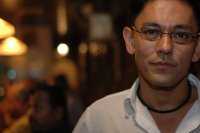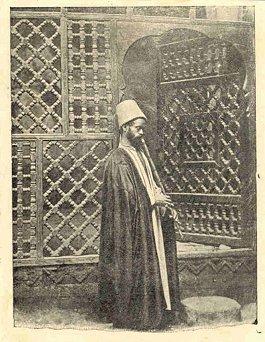Original Article URL:
http://www.theonlinecitizen.com/news/articles/article17.aspThe Online Citizen -
http://www.theonlinecitizen.com/Globalization and its impact on Singapore family values
By Ney Reed
Tuesday, 28 November, 2006
Organic - adj; Relating to natural way a system works; living nature of living things; not synthetic; constitutional in the structure/make up of something; of which source are alive; of which outcomes are alive; unadulterated; natural disposition.
Culture - noun; Comes from from the Latin word colo, -ere, with its root meaning "to cultivate". Relating to "the set of distinctive spiritual, material, intellectual and emotional features of society or a social group, and that it encompasses, in addition to art and literature, lifestyles, ways of living together, value systems, traditions and beliefs"(UNESCO); "made up of the following four elements that are passed on from generation to generation by learning alone - values, norms, institutions and artifacts"
Globalization - noun; Relating to the process of growth of a phenomenon, within a native/peripheral unit/system of the universe, into a phenomenon that exists in many or most or every units and systems of the universe
Globalization is not a recent or purely ill phenomenon. In fact the process of Adam and Eve spreading out with their descendents across the globe after landing onto two different locations on earth, will probably constitute the first globalization phenomenon. Since then knowledge, language, religion etc have all globalized throughout time.
What is particularly distasteful and worrisome of the process of globalization today is that it has conservatively shrunk into a process that is predominantly dictated by corporatization, commercialization and commodification of the world with a clear objective to support and promote capitalism. The global outcomes of such have been a re-definition and re-imagination of the world to the extent that humanity's equilibrium and sustainability have been adversely affected.
The manner by which globalization has displaced Singapore's organic culture is by disrupting inter-generational learning process that facilitates the inter-generational transfer of values, norms, institutions and artifacts. Hence globalization has replaced the traditional forms of these in Singapore with its neo-American and/or neo-Western equivalent only to displace Singapore organic culture which provides each Singaporean with his/her indigenous identity. Hence today what haunts us is the reality that a Singaporean Indian, Chinese, Malay or Eurasian is no longer a Singaporean Indian, Chinese, Malay or Eurasian respectively.
Singapore’s organic cultureIn other words Singapore's organic culture is the natural constitutional way Singaporeans live which is shaped by the ethnic groups and their own cultures either working independently or through integration. Singapore organic culture is one that allows us to shut down Singapore today and restart it at any time periods say 1450, 1950 or 2950 and only get different time periods Singapore but which are in essence no different from each other. Globalization unfortunately has broken down this organic culture whereby should our forefathers be brought back from their graves, they will misidentify Singapore to be "an island floating off North America". This is the nightmare that globalization has forced us to live in.
"The Marxist critic of postmodernism Fredric Jameson argues that American capitalism, in the form of huge multi-national corporations backed by the Western media, is (re)colonizing the world. This 'coca-colonisation' of the globe is seen to result in a cultural homogenisation as 'native' cultures are swallowed up by Western values."
One of the most basic and important set of values of Singapore organic culture is family values which have all along been passed inter-generationally through learning. These values be it Chinese, Indian, Malay or Eurasian governed, promoted and gave utmost priority to the processes of creation of family unit, the maintenance and growth of it. The same set of values also laid out strict regulations on the deconstruction of family.
Hence the strongest institution of the Singapore organic culture had always been its fundamental social unit - the family that comes together through another institution, marriage, and grows and multiplies through its traditional, ethnic, religious values and norms. These values included filial piety, pro-family attitudes, pro-creation attitudes etc. The basic assumption members of the organic Singapore family held will be that they are like fingers of a hand moving together and never apart nor alone.
Globalisation’s effect on Singaporean family valuesSecularism radicalism, cynical liberalism and commercialization, which are pillars of globalization, have indeed displaced the organic Singapore family through redefining their family values only to induce the Singaporean to be cynical about family, marriage, children and old aged parents and placing more importance on him/herself selfishly than on the collective unit hereby the Singaporean today values marginal benefit more than family benefit. Hence as Karl Marx predicted, family relations have been replaced with money relations.
Today as a result of all this we can observe Singaporeans being relatively more averse than ever before to marry, give birth, live together with a spouse till death do them apart, to be filial to their spouse, live together or look after their parents etc. A generation or two ago these trends will have been unthinkable given the kind of values then.
Because of this we can today observe dysfunctional outcomes in families where literacy and income are high which only used to be specific in lower literacy, low income families ridden with other problems such as alcohol and drugs. National replacement rate having gone way below the natural rate of 2.1 has resulted in us having to depend on immigrants to balance population growth rate so as to preserve economic growth. Divorces rates are amongst the highest of all times and petty reasons for divorce are increasingly becoming common.
The loss of self-identity has given rise to an identity crisis amongst individuals and one of the forms include sexual identity crisis which results in growth of homosexuality or bisexuality. Sexuality that used to be commonly experimented and explored by individuals within the institution of marriage is increasingly being done outside marriage only to contribute to an unprecedented phenomenon of having to protect sexual activity from threatening diseases contagion.
We cannot clumsily discount these trends and observations as modernity since these upset the very equilibrium and sustainability of the family and hence community, society and country.
About the author:Ney Reed, aged 29, a Singaporean, economist by training, considers himself a conceptual analyst, had been an active participant in public-interests & social-interests dialogue groups, anti-globalization movements and Palestinian human rights lobby in North America during his five years.Ney maintains a blog here: http://neyreed.blogspot.com/


